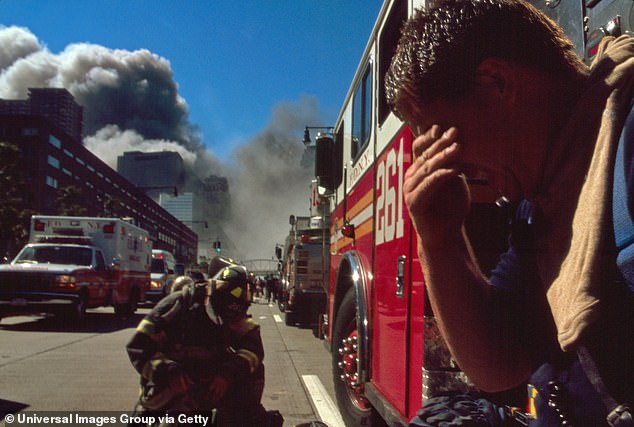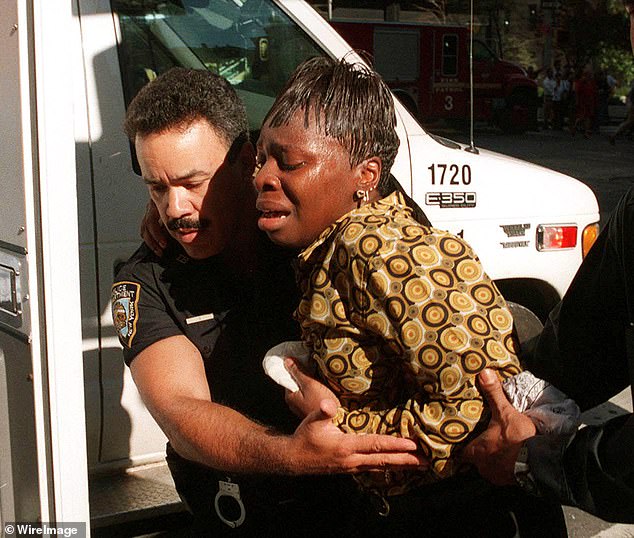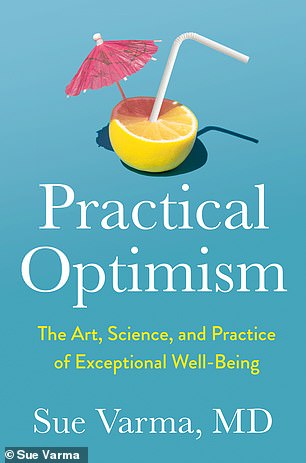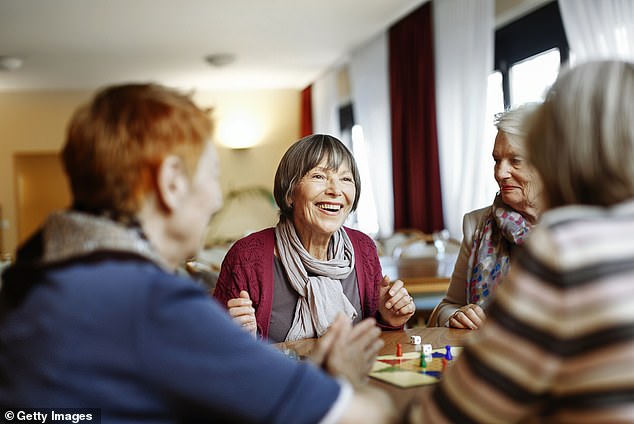Table of Contents
My patients often seek help in their darkest times: job loss, medical illnesses, and the loss of a loved one are just a few of the challenges that can be incredibly discouraging.
But what happens when several of these tragedies happen all at the same time, on one day, in one moment, in an unexpected and tragic way? This was the reality many faced on September 11, 2001 in New York City.
As a young psychiatrist in training, I had never imagined that I would be working with survivors of such a catastrophic event.
Suddenly, when I was an intern at a hospital in New York City, I became responsible for the mental health care of rescue, recovery and support workers, as well as grieving families and ordinary New Yorkers, like everyoneI struggled to find meaning in life after the largest terrorist attack on American soil.

Dr. Sue Varma directs the World Trade Center Mental Health Program at NYU Langone


Dr. Varma’s training could never have prepared her to work with 9/11 survivors.


Through her work with first responders and survivors of the 9/11 terrorist attack, Dr. Varma learned some of the most essential tools a person can have in the face of trauma and adversity.
A few years later, I was selected as the first medical director of the World Trade Center Mental Health Program (WTC MHP), part of what is now New York University Langone Medical Center, one of seven centers in the entire United States established in the wake of the tragedy. to provide ongoing screening, treatment and support to WTC first responders.
Little did I know that this experience would plant the seeds of what would become my philosophy when it comes to facing life’s challenges: something I like to call practical optimism.
I found that optimism played a critical role in developing the resilience I saw in many of the patients I had met.
At first I had thought that optimism was something you are born with or not. However, over time, I realized that while genetics plays a role, the rest is up to us.
I wanted to learn and teach skills that could help people recover from adversity and thrive in the face of it.
And from the many incredible people I met after 9/11, I learned some of the most essential tools a person can have in the face of trauma and adversity, and it is with this guidance that I live my own life.
Here are the five strategies I practice every day that help me keep going, even in the worst of times.


Optimism plays a critical role in developing resilience, and while genetics plays a role, the rest is up to us.


Altruism, giving back to the community, and helping others can shift our focus from internal reflection to external connection.
FIND A BRIGHT SIDE (THOUGH IT IS VERY DIFFICULT)
Even in the midst of tragedy, our perspective is a choice. Tragic events often expose us to both the depths of depravity and the heights of humanity. The aspect we choose to focus on will determine our perspective on life.
When I can’t change a situation that bothers me, I try to find a way to change my attitude toward it. This change of perspective allows me to rethink what would otherwise have been unpleasant situation for me and turn it into a more tolerable oneThis (and maybe even pleasant!) experience.
Try to see things from someone else’s perspective or look for something positive: a silver lining, a lesson learned, a bullet dodged, a crisis averted.
HELP OTHERS…AND SHARE YOUR PAIN
When we change “I” to “we,” even illness becomes well-being. Altruism, giving back to the community, and helping others can shift our focus from internal reflection to external connection. Even small gestures of kindness can have a significant impact on your own physical and mental health.


Turn your pain into purpose by sharing any knowledge you have with others. I know people whose extreme life experiences have forced them to confront loss, trauma, and hardship, and sharing what they learned became an important part of their own healing journey.
We also know that altruism can be therapeutic for those who have experienced severe stress. Several of my patients have expressed interest in the areas of grief counseling, rehabilitation and therapy, from helping others with physical injuries to substances use disorders – as a result of your own experiences, losses, trials and triumphs.
DON’T KEEP ANYTHING BOTTLED
It takes more mental resources to repress emotions than to express them. Unexpressed emotions often manifest as physical symptoms. Keeping a journal to express emotions, worries, fears, and concerns can be liberating and therapeutic.
VOLUNTEER FOR A SENSE OF PURPOSE
In his book Man’s Search for Meaning, the Austrian psychiatrist Viktor Frankl talks about about what he learned as an Auschwitz survivor concentration camps: ‘Oh! to the one who saw no more meaning in his life, no objective, no purpose in carrying out in. It was soon lost.
And in a study published in The Lancet, participants who expressed a sense of meaning and purpose were 30 percent less likely to die. during the average follow-up period of eight and a half years than those with the least well-being
Therefore, it is clear that developing a sense of purpose in life can protect us from stress and help us stay afloat during difficult times. Even small acts of volunteering or helping others can create a sense of self-worth and purpose.


Even small acts of volunteering or helping others can create a sense of self-worth and purpose.
It could be as subtle as parents volunteering at their child’s school. as a way to get more involved in your children’s lives, as well as adding parental involvement Night out after meetings.
I’ve seen this purpose/pleasure combination take the form of a fundraising workout followed by a community dinner. Or someone whose work consumes their nights and weekends and decides to reclaim their time and give back by volunteering at a community garden on Saturdays.
The effort does not have to be great. Many of my patients in the WTC Mental Health Program simply accompanied others to their medical appointments. His presence was the greatest gift to his fellow men.
NEVER SUFFER IN SILENCE
Don’t suffer in silence. Seek support when needed. There are resources like the National Suicide Prevention Hotline (988) available to those who need them.
Dr. Sue Varma is a certified psychiatrist and author of Practical optimism: The art, science and practice of exceptional wellness. You can keep in touch with her (IG, Twitter, FB @doctorsuevarma)

